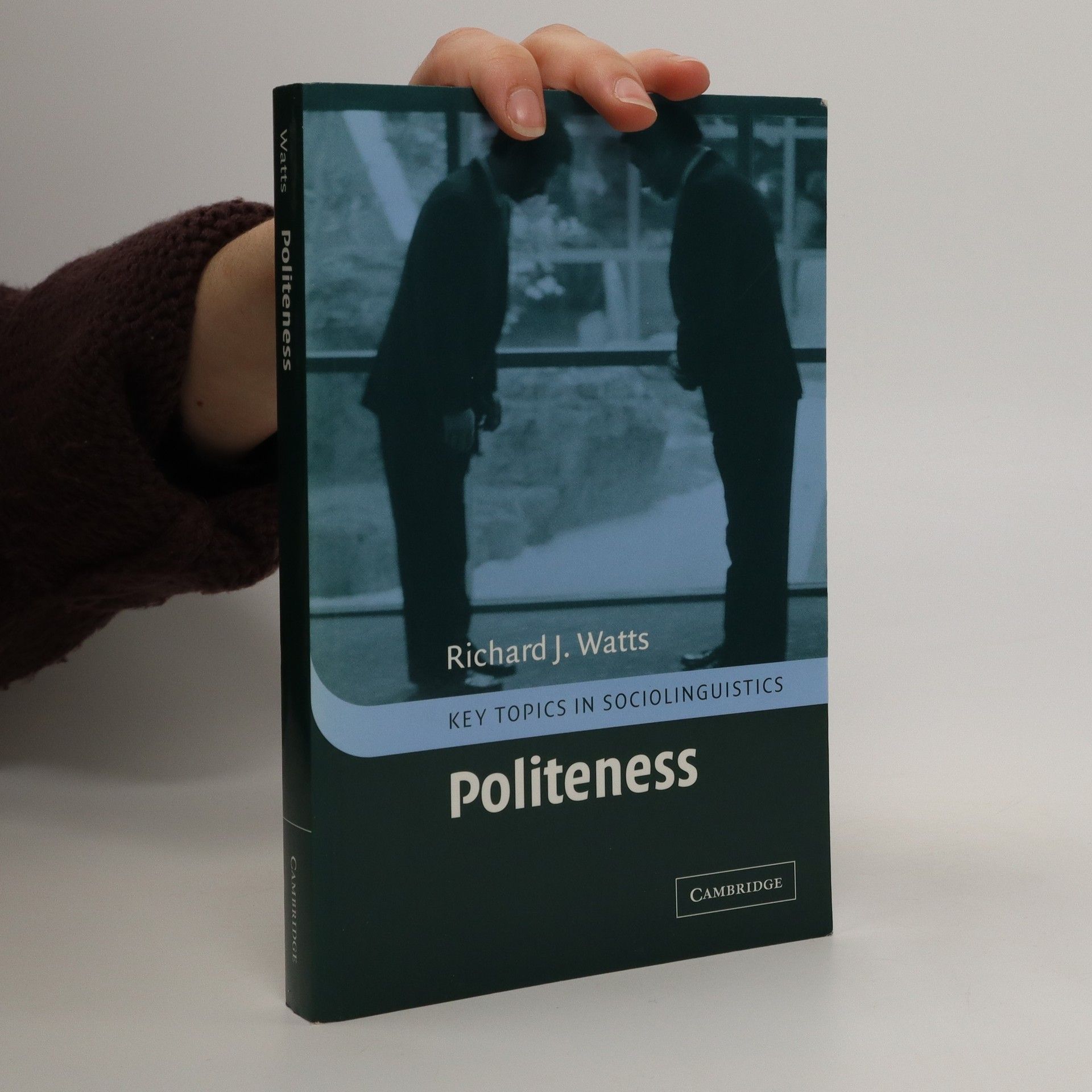Politeness
- 318pages
- 12 heures de lecture
During the last fifteen years, existing models of linguistic politeness have generated a huge amount of empirical research. Using a wide range of data from real-life speech situations, this new introduction to politeness breaks away from the limitations of current models and argues that the proper object of study in politeness theory must be commonsense notions of what politeness and impoliteness are. From this, Watts argues, a more appropriate model, one based on Bourdieu's concept of social practice, is developed.

